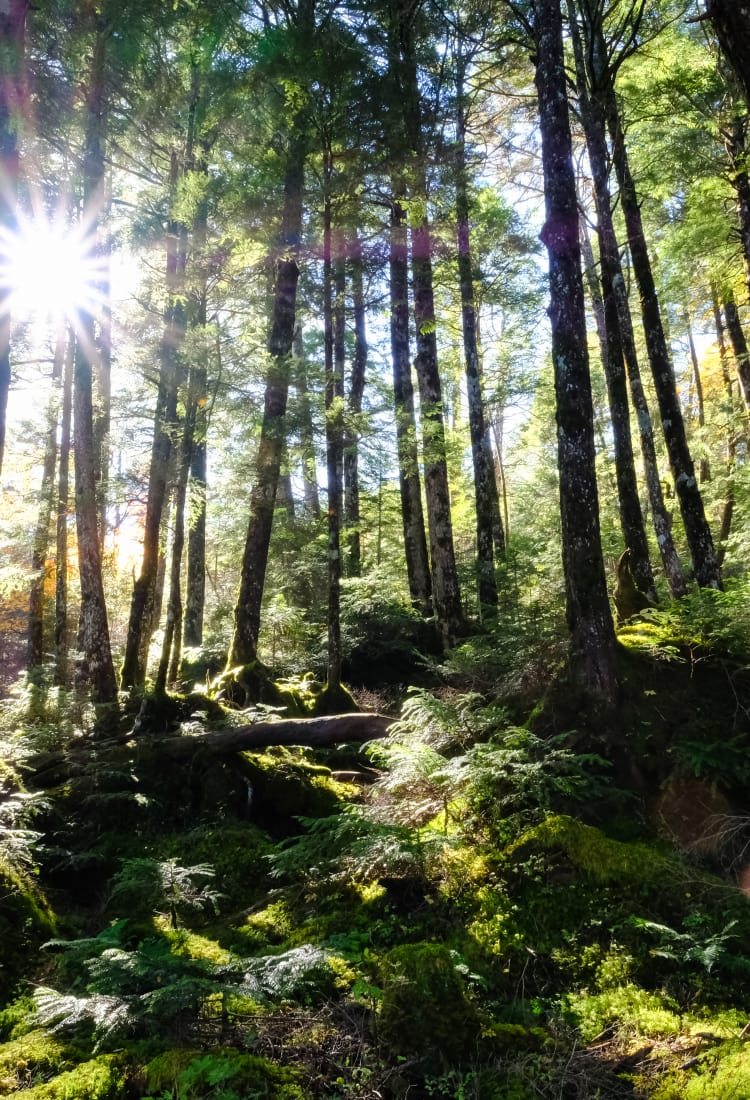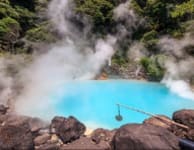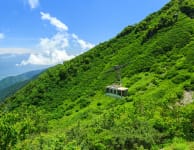The Japanese practice of Shinrin-yoku, or forest bathing, is the simple and therapeutic act of spending time in a forest
If you've ever been in a forest, listened to the birds and watched the sunshine filtering through the leaves, you've already participated in one of the best things you can do for your physical and mental well-being. Even Japanese doctors promote forest bathing as a relaxing break from hectic urban life.

Forest bathing does wonders for physical and mental well-being
What is forest bathing
Leave your phone at the hotel—this should be a chance for a digital detox—and head to the nearest forest for a meander through the trees. No hiking, running, or mountain-climbing necessary. You can even sit if you want to. Take a moment to appreciate your surroundings and listen to the sounds around you: twittering birds, rustling bush, trickling streams. Breathe in clean, fragrant air and soak in the sights of the textured ground and the shapes of the leaves in the sky. Touch the soft, green moss carpeting the shaded stones, or the rough bark on the trees. Let the stillness around you influence your state of mind and make you forget the constant motion of the city. This is a sensory experience.

Forest bathing makes you happier
The many health benefits of forest bathing
Forest bathing has become a vital part of preventative healthcare in Japan. The results of Japanese studies have shown forest bathing improves sleep quality, mood, ability to focus, and stress levels. Chronic stress can contribute to the development of ailments like anxiety, depression, and insomnia, to name a few. It can also contribute to physiological problems, like high blood pressure, muscle tension, and lowered immune response. Spending time in nature, away from modern technology and big cities can improve your physical and mental health by reducing the effects of stress on your body. Prescribed forest bathing in Japan has led to a healthier lifestyle for people of all ages.


History of forest bathing
Forest bathing as a medicinal practice in Japan goes back to the 1980s. Around this time, the world was coming to realize the negative effects of depression, distraction, and aches and pains. These effects have only gotten worse with time, and are now recognized in cities all over the world. It's difficult to truly relax in cities, with sensory overload caused by heavy traffic, dense populations and long hours spent in offices. High demand for real estate has made many cities "green-poor”, with few trees and parks to give even the illusion of nature.
This is where the importance of forest bathing becomes apparent. Being in a forest and paying attention to our surroundings stimulates the senses enough to ease the drive to do something, yet is calming enough to allow us a moment of peace.
Dr. Qing Li, MD, Ph.D. is a doctor at Nippon Medical School in Tokyo, president of the Society of Forest Medicine and author of Forest Bathing: How Trees Can Help You Find Health and Happiness. He estimates we spend 93 percent of our time indoors. He identified a nature deficit disorder in society, which contributes to negative feelings about life, but can be significantly improved by just a few hours of forest bathing.

Forest bathing options are much closer than you might think
Japanese medicine
The real value of forest bathing is how accessible it is. Forest bathing has similar benefits to other Japanese practices, such as Zen meditation and mindfulness, and is a much less intimidating concept. Meditation requires you to sit still with your thoughts and allow them to pass through your mind without engagement, while mindfulness is active awareness of your surroundings and life circumstances, and the acknowledgment of how you feel in the moment. In a forest, however, meditation and mindfulness come naturally when you allow your senses to focus on the small, uncomplicated changes around you.
Where can I go forest bathing in Japan?
If you're hesitant to attempt forest bathing alone, Japan has you covered. All over the country, centers specialize in the practice and offer organized tours based on your personal needs. With the aid of a guide or therapist, visitors learn how to stop and appreciate the nature around them—perhaps even finishing the day with a tea ceremony—and go home relaxed and satisfied.


If you'd rather take on forest bathing by yourself, Japan has stunning national parks that make perfect Shinrin-yoku candidates. If you like a hike, the Japan Alps are accessible from Tokyo. If your interests veer more toward a spiritual pilgrimage, the Kii Peninsula south of Osaka is home to the sacred forests of the Yoshino-Kumano National Park. If you like adventure, head south to Yakushima National Park and take a walk through a land full of giant trees nurtured by the sea for over a thousand years. Though Japan is known for its megacities and neon lights, it has no shortage of beautiful natural scenery perfect for forest bathing, and just what the Japanese doctor ordered.






























































